The Human Comedy

Brief Synopsis
Cast & Crew
Clarence Brown
Mickey Rooney
Frank Morgan
James Craig
Marsha Hunt
Fay Bainter
Film Details
Technical Specs

Synopsis
In the small town of Ithaca, California, teenager Homer Macauley takes a night job as a telegraph messenger in order to help his widowed mother Katie make ends meet during his older brother Marcus' military absence. The eager Homer is awestruck by his manly new manager, Tom Spangler, a former valley champion in the 220 low hurdles, the same track and field event in which Homer competes, and is undaunted when the elderly, eloquent wire chief, Willie Grogan, issues instructions on how to rouse him when he is drunk. After Homer delivers his first wartime death notice, however, he is burdened by the grim realities of his job and confides a sudden loneliness to his mother. The understanding Katie, who has come to terms with her own husband Matthew's untimely death, reassures him that his confusion is a natural part of growing up. Later, at school, Homer and his rival, the well-to-do Hubert Ackley III, get into trouble with Miss Hicks, their ancient history teacher, for trading insults in class. As punishment, Miss Hicks orders the teenagers to stay after school and miss their scheduled 220 low hurdle race. The boys's coach, Blenton, however, lies to Miss Hicks that the principal has ordered Hubert to compete and pulls him from detention.
Angry at Blenton's deception, Miss Hicks allows Homer to go, and to everyone's surprise, Homer wins the race. Later, Homer is forced to sing Hubert's telegraphed birthday greeting to Helen Elliot, the object of Homer and Hubert's desire, at a party to which Homer has not been invited. Although humiliated, Homer accepts Hubert's subsequent apology, and both boys agree to make peace with each other. The down-to-earth Tom, meanwhile, reluctantly accepts an invitation from his wealthy girlfriend, Diana Steed, to meet her parents for the first time. Just before he is to be introduced to her father, however, Tom bolts from the Steed house and confesses to Diana his fears that her parents will not approve of him. After Diana assures Tom that her parents are not snobs, the two pledge their love, and Tom greets Mr. Steed wearing one of the elder man's bow ties. At the same time, in town, Homer's older sister Bess and next-door neighbor Mary Arena, Marcus' fiancée, meet three soldiers on the way to the movie theater and shyly invite them along to the show. The soldiers are grateful for the women's company, and Bess and Mary, seeing Marcus in each of them, are happy to have brightened the lonely men's day.
Far from home, at his Army training camp, Marcus, meanwhile, tells his buddy, Tobey George, about his idyllic life in Ithaca, and Tobey, an orphan, decides to move there after the war and "become" a Macauley. Just before Marcus is to be shipped out, Homer receives a heartfelt letter from him. Unnerved by Marcus' advice to prepare for his possible death, Homer declares to Willie that he will "spit at the world" if Marcus is killed. Months later, while attending a Sunday festival, the newly married Tom confesses to his bride, Diana, that he has enlisted in the Navy, and although she is pregnant, Diana bravely endorses his decision. In town, meanwhile, Homer notices Willie in the telegraph office while walking with Bess, Mary and his little brother Ulysses, and stops to say hello. Willie is passed out and, as a message starts to come in, Homer runs for some hot coffee. When Homer returns, he discovers that Willie has died, having succumbed to a heart attack after receiving a message about Marcus' death. Tom then comforts the grief-stricken Homer, and while Homer gathers his courage to tell his family the tragic news, the two play horseshoes in the park. At the same time, Tobey, who was wounded during battle, has arrived in Ithaca and is headed for the Macauley home. Outside his house, Homer meets Tobey, about whom Marcus had often written, and sadly accepts Marcus' class ring from him. Bolstered by Tobey's love, Homer yells to his family that "the soldier's come home" and walks through the front door with him, ready to face his family. Watching his now mature son, the spirit of Matthew comments to the spirit of Marcus that "the ending is only the beginning."

Director

Clarence Brown
Cast

Mickey Rooney
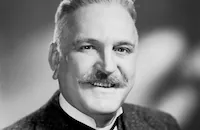
Frank Morgan

James Craig
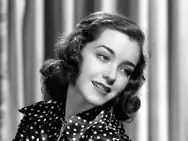
Marsha Hunt

Fay Bainter
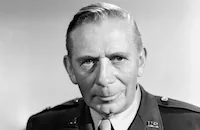
Ray Collins
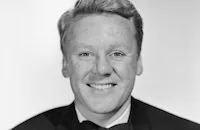
Van Johnson
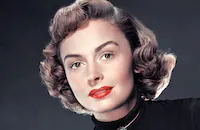
Donna Reed

Jack Jenkins

Dorothy Morris

John Craven
Ann Ayars

Mary Nash
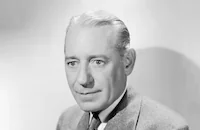
Henry O'neill

Katharine Alexander

Alan Baxter

Darryl Hickman

Barry Nelson
Rita Quigley

Clem Bevans
Adeline Dewalt Reynolds

Don Defore

Bob Mitchum
Ernest Whitman
Mark Daniels

Don Taylor
James Warren
William Roberts
David Holt
Irvin Lee
Alan Schute

Byron Foulger
Wallis Clark
Bertram Marburgh

Wally Cassell
Mary Servoss
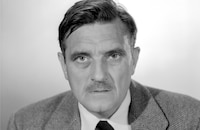
Morris Ankrum

Lynne Carver

Carl "alfalfa" Switzer
Rudy Wissler
Conrad Binyon
Freddie Walburn
Drew Roddy
Darwood Kaye
Bobby Samrich
Anthony Mozola
Albert Conti
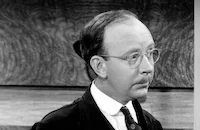
Hobart Cavanaugh
Emory Parnell
Harry Adams
Howard J. Stevenson
Ernie Alexander
Frank Jenks

Howard Freeman
Robert E. O'connor
Jay Ward
John Shay
James Craven
Jane Drummond
Jane Farrar
Jean Fenwick
Leigh Sterling
Dora Baker
Daisy Dewitt
Otto Hoffman
Rosita Delva
Paul Revelle
Gibson Gowland
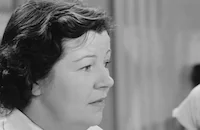
Margaret Bert
Barbara Bedford

Claire Mcdowell
Hooper Atchley
Guy D'ennery
Clancy Cooper
Sid D'albrook
Crew
Ernest R. Ball
Hugh Boswell
Clarence Brown
Jack Dawn
Al Dubin
Howard Estabrook
Cedric Gibbons
Paul Groesse
E. A. Hoffman
Hugh Hunt
Irene
Ernst Matray
Conrad A. Nervig
William Saroyan
Douglas Shearer
A. J. Showalter
Herbert Stothart
Harry Stradling
Bill Webb
Edwin B. Willis

Photo Collections
Videos
Movie Clip




Trailer
Hosted Intro
Film Details
Technical Specs

Award Wins
Best Writing, Screenplay
Award Nominations
Best Actor
Best Cinematography
Best Director
Best Picture
Articles
The Human Comedy
Mayer wasn't alone in his admiration of the author. Saroyan's Pulitzer Prize-winning play The Time of Your Life and memoirs of his Armenian family's adjustment to life in America had won him a horde of devoted fans, including MGM producer Arthur Freed. Freed brought Mayer and Saroyan together, leading to Mayer's suggestion that the writer create a film for the studio. But though he was under contract for $300 a week, Saroyan never showed up at the studio, not even to pick up his pay. Freed tracked him down to his hometown of Fresno, California, where he convinced Saroyan to write a story based on his memories of growing up there. Saroyan holed up in a San Francisco hotel room, emerging with the finished story three weeks later.
But Saroyan didn't just want to write the film, he wanted to direct it and produce it as well. Mayer humored him until the script was finished, even allowing him to write and direct a short film called The Good Job. But the short was considered un-releasable, and Saroyan's episodic screenplay for The Human Comedy would have produced a four-and-a-half hour movie, so Mayer paid him for his writing, then assigned the re-write to studio scripter Howard Estabrook. Saroyan tried to buy the script back, then consoled himself by turning it into a novel. It came out the week The Human Comedy opened and became a major best seller, driving ticket sales for the film as well.
Saroyan had written the role of Homer Macauley with Mickey Rooney in mind. Working with director Clarence Brown, who had led him through Ah, Wilderness (1935) years earlier and would later direct one of his biggest hits, National Velvet (1944), Rooney turned in one of his most sensitive performances, winning an Oscar nomination for Best Supporting Actor. The film's small-town charm was in distinct contrast to Rooney's life at the time. He was in the middle of a painful divorce from his first wife, Ava Gardner, while the studio was fighting to keep him out of the draft (he would eventually enter the service in 1944).
More in keeping with The Human Comedy's small-town values was the career of Jackie "Butch" Jenkins, who almost stole the film as Rooney's younger brother. The spirited six-year-old was spotted clowning around on Santa Monica Beach by a Metro talent scout and tested for The Human Comedy, which led to a contract with MGM. Jenkins scored a big hit in the film and followed it with similar roles in Our Vines Have Tender Grapes (1945), with Margaret O'Brien, and the imaginatively titled My Brother Talks to Horses (1946), with Peter Lawford. But he didn't take well to the strain of filmmaking. When he developed a stutter, his mother pulled him out of the movies and moved him to Dallas. Ironically, his final release was 1948's Summer Holiday, in which he ended his career as he had begun it, playing Mickey Rooney's kid brother. Jenkins never returned to the films, settling down on a farm near Dallas, where he runs a string of car washes. When asked if he ever regretted leaving the movies, his answer would have been perfectly in character for The Human Comedy: "There may be a better way to live than on a lake with a couple of cows, a wife, and children but being a movie star is not one."
Director/Producer: Clarence Brown
Screenplay: Howard Estabrook
Story: William Saroyan
Cinematography: Harry Stradling
Art Direction: Cedric Gibbons
Music: Herbert Stothart
Principal Cast: Mickey Rooney (Homer Macauley), Frank Morgan (Willie Grogan), James Craig (Tom Spangler), Marsha Hunt (Diana Steed), Fay Bainter (Mrs. Macauley), Ray Collins (Mr. Macauley), Van Johnson (Marcus Macauley), Donna Reed (Bess Macauley), Jackie "Butch" Jenkins (Ulysses Macauley), Barry Nelson (Pat), Robert Mitchum (Horse).
BW-117m. Close captioning
by Frank Miller

The Human Comedy
TCM Remembers Van Johnson - Important Schedule Change on TCM In Honor To Salute VAN JOHNSON
The new schedule for the evening of Tuesday, December 23rd will be:
8:00 PM In the Good Old Summertime
9:45 PM A Guy Named Joe
12:30 AM Thirty Seconds Over Tokyo
2:30 AM The Last Time I Saw Paris
4:30 AM Thrill of a Romance
Van Johnson (1916-2008)
Van Johnson, the boyish leading man whose clean cut, All-American appeal made him a top box-office draw for MGM during World War II, died on December 12 in Nyack, New York of natural causes. He was 92.
He was born Charles Van Dell Johnson on August 25, 1916, in Newport, Rhode Island. By his own account, his early childhood wasn't a stable one. His mother abandoned him when he was just three and his Swedish-born father offered little consolation or nurturing while he was growing up. Not surprisingly, Johnson found solace in singing and dancing lessons, and throughout his adolescence, he longed for a life in show business. After graduating high school in 1934, he relocated to New York City and was soon performing as a chorus boy on Broadway in shows such as New Faces of 1936 and eventually as an understudy in Rodgers and Hart's musical, Too Many Girls in 1939.
Johnson eventually made his way to Hollywood and landed an unbilled debut in the film version of Too Many Girls (1940). By 1941, he signed a brief contract with Warner Bros., but it only earned him a lead in a "B" programmer Murder in the Big House (1941); his contract soon expired and he was dropped by the studio. Johnson was on his way back to New York, but as luck would have it - in the truest Hollywood sense - friends Lucille Ball and Desi Arnaz introduced him to Billy Grady, a lead talent scout at MGM, which was currently Ball's new studio. Johnson was signed up and almost immediately MGM had a star on its hands.
It might have been slow going at first, with Johnson playing able support in films such as Dr. Gillespie's New Assistant and The War Against Mrs. Hadley (both 1942). By 1943 the studio capitalized on his broad smile and freckles and starred him in two of the studio's biggest hits: A Guy Named Joe and The Human Comedy. Those two films transformed him into a boxoffice draw with a huge following, particularly among teenage girls. A near fatal car accident that same year only accentuated the loyalty of his fans, and his 4-F status as the result of that accident created an opportunity for him when so many other leading actors of the era (James Stewart, Clark Gable) were off to war. Johnson was quickly promoted as MGM'sleading man in war heroics and sweet romancers on the big screen: The White Cliffs of Dover, Thirty Seconds Over Tokyo (both 1944), Thrill of a Romance, the episodic Week-End at the Waldorf (both 1945), and a musical remake of Libeled Lady entitled Easy to Wed (1946).
Hits though these were, it wasn't until after the war that Johnson began to receive more dramatic parts and better material such as supporting Katharine Hepburn and Spencer Tracy in the political farce State of the Union (1948). other significant roles included the well-modulated noir thriller The Scene of the Crime, the grim war spectacle Battleground (both 1949), the moving domestic drama Invitation (1952) in which he played a man who is paid to marry a woman (Dorothy McGuire) by her father. Before he left MGM, he closed his career out in fine form with the sweeping musical Brigadoon, co-starring Gene Kelly and Cyd Charisse; and the lilting soaper The Last Time I Saw Paris (both 1954) with Elizabeth Taylor.
After he left MGM, the parts that came Johnson's way weren't as varied, but he had his moments in The Caine Mutiny (1954), the beguiling romance drama Miracle in the Rain (1956) with Jane Wyman; and his lead performance in one of the first successful made for-TV-movies The Pied Piper of Hamelin (1957). By the '60s, Johnson returned to the stage, and played the title role in London's West End production of The Music Man. He then returned to Broadway in the drama Come on Strong. He still had a few good supporting parts, most notably as Debbie Reynolds' suitor in Norman Lear's scathing satire on marital differences Divorce American Style (1967); and television welcomed his presence on many popular shows in the '70s and '80s such as Maude, Fantasy Island, The Love Boat and of course Murder She Wrote. There was one last graceful cameo in Woody Allen's The Purple Rose of Cairo (1985), yet for the most remainder of his career, Johnson worked mainly on the dinner theater circuit before retiring from showbiz completely by the mid-90s. He is survived by a daughter, Schuyler.
by Michael T. Toole
TCM Remembers Van Johnson - Important Schedule Change on TCM In Honor To Salute VAN JOHNSON
Quotes
Trivia
Notes
rThe film's title card reads: "Metro-Goldwyn-Mayer Presents William Saroyan's The Human Comedy." Voice-over narration, spoken by the character "Matthew Macauley" (Ray Collins), is heard intermittently throughout the picture. Collins, as a spirit, also appears onscreen in two scenes. Saroyan's novel was based on his screenplay for the film. Like his character "Homer," the teenaged Saroyan worked as a telegraph messenger in Fresno, CA. Later, he worked as the manager of the local Postal Telegraph office. According to contemporary sources, M-G-M bought Saroyan's 240-page script, which he reportedly wrote in about two weeks, in February 1942 for approximately $60,000. At the same time, Saroyan was negotiating with M-G-M to produce and direct the picture, and made a short film for the studio as a test piece. In May 1942, after Saroyan had completed the short, A Good Job, M-G-M decided to drop him as director of The Human Comedy and announced that King Vidor was to direct the film. (Sources disagree as to whether Saroyan was dropped because of the poor quality of the short, or because of the length of his script for The Human Comedy.) Angry, Saroyan walked off the M-G-M lot and returned to his home in Central California, where he then wrote the novel version of his story. Modern sources state that Saroyan attempted to buy back his screenplay from M-G-M head Louis B. Mayer, but was refused. In July 1942, Clarence Brown was assigned to direct the film, and Howard Estabrook was hired to trim Saroyan's screenplay to a two-hour length. Saroyan's novel was published concurrently with the film's release, and was the March 1943 "Book-of-the-Month Club" selection. According to the New York Times review, the novel became a best-seller a week after its release.
Child actor Jack "Butch" Jenkins, son of actress Doris Dudley and grandson of columnist Bide Dudley, made his screen debut in the picture. According to the Variety review, which praised his performance as "one of the most natural and outstanding...ever transferred to the screen," Jenkins was "discovered" by Clarence Brown's secretary. Brown went on to direct Jenkins in M-G-M's 1944 film National Velvet. According to modern sources, Jenkins' acting career ended in 1948, after he developed a stutter. His last film was The Bride Goes Wild . John Craven, who plays "Tobey George" in the picture, also made his screen debut in The Human Comedy. Craven's father James appears in the picture as well.
Contemporary news items add the following information about the production: In August 1942, Gene Kelly was announced as a cast member in an unspecified part, and Lionel Barrymore was announced in the role of "Willie Grogan." Spring Byington was first cast as "Mrs. Steed." Keenan Wynn was reportedly sought for a role, but was unavailable. Richard Quine, Margaret Wycherly, Howard Every, Kathleen Howard, John Ardizoni, Marjorie Kane, Lee Phelps, Ben Hall, Art Belasco, Del Lawrence, John R. Wald and Horace McNally were announced as cast members, but their participation in the final film has not been confirmed. Although S. Z. Sakall, in the role of "Mr. Ara," Jessie Arnold, Connie Gilchrist, Margaret Armstrong, Sarah Padden, Leila McIntyre and Joseph E. Bernard are listed as cast members in CBCS, they did not appear in the final film. Some scenes in the film were shot at an abandoned Pacific Electric freight station in Santa Monica, CA, the athletic field of North Hollywood High School, Sunland, CA, and the Clarence Brown Ranch in Calabasas, CA. In August 1942, Hollywood Reporter announced that Brown was scouting locations in Fresno, but it is not known if any scenes were actually shot there. In addition to the above-listed songs, portions of the following songs are heard in the picture: "Rock of Ages," "Cielito lindo," "My Old Kentucky Home" and "Church in the Wildwood." The festival scene includes shots of various ethnic Americans, performing folk dances from their native countries.
The Human Comedy was generally well-received by critics and earned many accolades. The Hollywood Reporter reviewer described the film as "the best picture this reviewer has ever seen," while the Daily Variety reviewer called the picture "one of the screen's immortals, destined to leave its mark at the box office as well as on the scrolls of critical praise." According to a February 1943 M-G-M publicity item, PCA director Joseph I. Breen declared the film "the greatest motion picture we have ever seen." Modern sources claim that The Human Comedy was Louis B. Mayer's favorite film. The Human Comedy was nominated for Academy Awards in the following categories: Best Picture, Best Actor (Mickey Rooney), Best Director and Best Cinematography (black and white). Saroyan won the Oscar for Best Writing (Original Story). In addition, the film earned one of the Motion Picture Research Bureau's best audience ratings, and was named the best film of 1943 by the Canadian Department of National Defense.
On September 9, 1949, the Hallmark Playhouse broadcast a radio version of the story, starring Mickey Rooney and directed by Clarence Brown. On March 30, 1959, the CBS television network broadcast an adaptation of Saroyan's story, directed by Robert Mulligan and starring Michael J. Pollack.

















